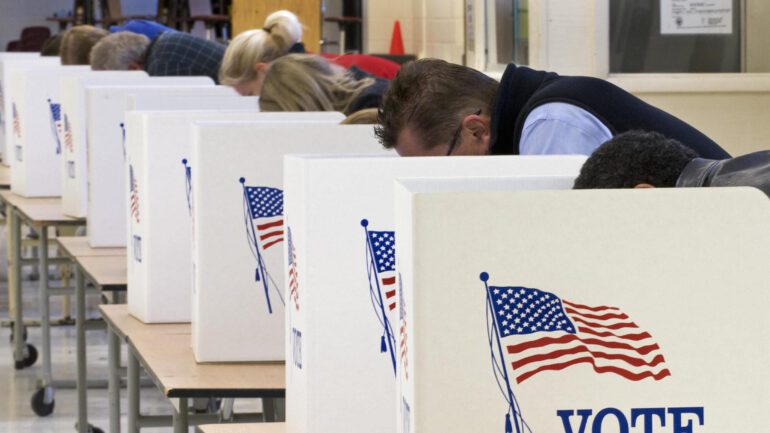TL;DR:
- Democratic lawmakers formed a dedicated AI task force to counteract the threat of deep fakes in the 2024 elections and national security.
- Rep. Derek Kilmer leads the New Democrat Coalition’s 97-member AI working group, emphasizing AI’s potential and job displacement solutions.
- Concerns escalate due to the misuse of deepfakes for disinformation, urging comprehensive AI regulation.
- Rep. Joe Morelle introduces legislation to criminalize AI-generated images depicting real individuals in fabricated situations.
- Recent instances highlight AI’s influence, such as mimicking President Trump’s voice and producing disaster scenarios by the Republican National Committee.
Main AI News:
In a strategic move aimed at fortifying the upcoming 2024 elections and enhancing national security, Democratic legislators on Capitol Hill have unveiled the establishment of a dynamic working group solely dedicated to the oversight of artificial intelligence (AI) applications. This groundbreaking initiative is strategically designed to counter the looming threat of deep fakes destabilizing vital democratic processes while ensuring citizens’ personal lives remain uncompromised.
At the helm of this pioneering AI task force stands Rep. Derek Kilmer, an influential figure hailing from Washington State. Kilmer, known for his judicious leadership, has assumed the role of chair within the New Democrat Coalition – a formidable collective comprising 97 House members. This assembly, which habitually operates behind the political curtain, exercises substantial clout in shaping caucus policies and directives.
Guided by a resolute commitment to harnessing AI’s latent potential, lawmakers within the coalition have articulated twin pillars to guide their efforts. The first entails harnessing AI’s transformative capabilities to streamline and enhance various societal domains. Simultaneously, their second objective is to guarantee a robust support system for workers displaced by the march of automation, ensuring a seamless transition into alternative roles within the workforce.
Nevertheless, the emergence of deepfakes – AI-generated counterfeits – as potent tools for disinformation dissemination has thrust this issue into the vanguard of the coalition’s concerns. The multifarious ways through which deepfakes can precipitate chaos are not lost on the legislators. These nefarious applications include the dissemination of fabricated narratives by foreign governments, orchestrated disruptions in the political landscape, and the propagation of AI-forged news to tarnish individual reputations.
Rep. Kilmer, renowned for his foresight, had earlier advocated for an annual comprehensive report on the evolving landscape of digital forgery. This recommendation, endorsed by a bipartisan alliance within both the House and the Senate, laid the groundwork for a deeper understanding of the challenges posed by AI-driven misinformation.
Among the esteemed ranks of the New Democrats’ AI task force stands Rep. Joe Morelle from New York. With determination as his compass, Morelle has introduced legislation of paramount significance. This legislation seeks to criminalize the dissemination of AI-crafted images portraying real individuals within fictitious and compromising scenarios, curtailing the potential misuse of this technology.
Recent occurrences underscore the urgency of such deliberations. An influential political entity aligned with Florida Governor Ron DeSantis harnessed AI capabilities to emulate the voice of former President Donald Trump, orchestrating a simulated reading of a social media post penned by Trump himself. Furthermore, credible reports have surfaced regarding the Republican National Committee employing AI to conjure vivid depictions of plausible catastrophes that might unfold should President Joe Biden secure a second term – a scenario depicting events like China’s aggression against Taiwan.
Conclusion:
This strategic move by moderate Democratic legislators signifies a proactive stance in harnessing AI’s transformative potential while guarding against its misuse. The creation of a dedicated AI working group underscores the importance of addressing deep fake-related challenges to preserve the integrity of elections and national security. This initiative sets the tone for a market that will likely witness increased regulatory scrutiny and innovative AI applications, shaping a landscape where technological advancements align with responsible governance.

